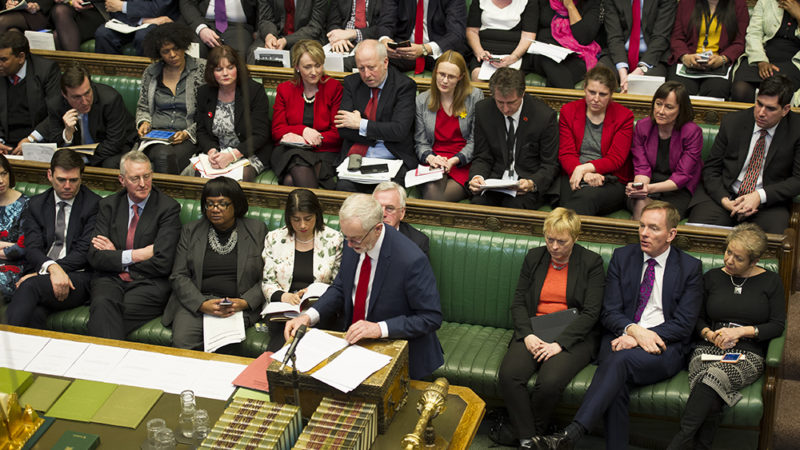
As Westminster packs up for summer recess, Boris Johnson, our new Prime Minister, will have no time to rest: with a majority of just two and the crucial “do or die” Brexit deadline looming, many political observers have concluded that an early election is likely. This seems to be reflected in Johnson’s appointments, both in cabinet and behind the scenes in No 10 and 11. A brutal cull of former cabinet members and ministers, replaced with allies and hardline right-wing Brexiteers, paired with the leading brains of the Vote Leave operation hired as special advisors, would suggest this is not a government intending on governing, but rather an all-guns-blazing campaigning machine.
The most prominent former Vote Leave staffer now working for the Prime Minister is Dominic Cummings, the notorious campaign strategist and ex-SpAd to Michael Gove (when he was Education Secretary). During the 2016 referendum campaign, Cummings understood that to beat Remain, he needed to build a campaign that tapped into the emotional Zeitgeist of Britain. The Leave campaign’s masterstroke was to identify issues that people cared deeply about – reflecting their values, fears and hopes – and tied it all together in the message that leaving the EU would address their concerns.
We saw it with the £350m a week for the NHS. People in Britain see the NHS as a national treasure and are worried about it being stretched. Vote Leave promised that, upon leaving the EU, a lot of money would be freed up to invest it in the Health Service. And Cummings played on xenophobia and anti-Muslim feelings in society by scaremongering over Turkey’s potential EU membership. One can hardly argue that either pledge was rooted in facts, but both messages proved highly successful in the campaign. Vote Leave completely outflanked Britain Stronger In Europe – a sterile “facts and figures” campaign with seemingly little understanding of the intersection of political messaging and emotional appeal.
Vote Leave’s leading figures are now back in the driving seat. Whether there will be a general election or a second referendum, Brexit is now the inescapable issue – and Cummings and his former colleagues are the masters of the game. The experience they have gained through running Vote Leave means that they understand the mood in the country that Brexit fed off, and how to manipulate it, better than most. And they are already using this knowledge to eliminate a Labour threat in any general election.
Labour’s messaging after Brexit focused on supporting those ‘left behind’ regions of the country most affected by deindustrialisation and austerity by pledging more investment. They also accepted the narrative created during the referendum that controlling immigration was a key deliverable aim for a government after Brexit: the party promised to scrap free movement and replace it with an immigration system that serves the British economy. When trying to make the case for public services, Labour centred on police cuts. This sought to help Labour overcome its perception problems with voters around law and order issues, in the knowledge that polling showed police investment was popular with voters.
Delivering his first speech as Prime Minister on the steps of Number 10 last week, Johnson immediately neutralised Labour’s messaging on police cuts by simply pledging a higher number of police officers than Labour previously did. He then commissioned the Migration Advisory Committee to look into an Australian-style points-based immigration system. This fulfils both a pledge to control and manage immigration but also to enable those who can serve the needs of the economy to come here. And on Saturday, Johnson travelled up North to unveil a pledge to invest £3.6bn in ‘left behind’ towns – all whilst insisting that the backstop must go and a Johnson government is ready to stick it to the EU and drive Britain off the cliff-edge.
After the 2017 general election campaign, in which Labour performed better than expected, there was a wide acceptance that Jeremy Corbyn’s party had been successful in shifting the political narrative. Even Tory politicians have since declared that “austerity is over”. But austerity is only over insofar that simply investing in infrastructure, the health service and police is now regarded as “anti-austerity”. Other policy areas – such as welfare cuts or local government funding – are left largely untouched.
The flaw in Labour’s strategy was that it did shift the narrative around austerity on a core set of pledges, rather than educating people on the systemic, root cause of inequality – capitalism. If during an election campaign, Labour centres pick-and-choose public investment rather than systemic change, we continue to operate within this dominant economic framework, rather than posing an intellectual or practical challenge.
And they must not give in to paternalistic instincts of fighting for a government to ‘save the poor desperately crying out for a Labour government’ either – not when “taking back control” is the only show in town.
Working-class people, and people in deprived communities, are people with pride. Patronising them will not work. Corbyn’s Labour needs to return to a bold message of hope because radical socialist transformation means giving power back to the people. It is not just about installing other politicians with better intentions that will take care of working-class people within a system that is fundamentally flawed.
Any campaign against Johnson must be founded on these principles. A few spending pledges and give-aways like free license fees for pensioners will not cut through against a Conservative campaign grounded in a narrative of hope and new beginnings for Britain. Labour needs to go back to crafting its own story of hope and empowerment instead.




More from LabourList
‘Council Tax shouldn’t punish those who have the least or those we owe the most’
Two-thirds of Labour members say government has made too many policy U-turns, poll reveals
‘Two states, one future: five steps on the path to peace for Israelis and Palestinians’